China and the US must escape both Thucydides and Kindleberger traps

Henry Kissinger, the American geostrategy and foreign policy stalwart, in the book "On China" shows how China's national psyche is shaped by its 5,000-year-old written history and the mythology that portrays it as an eternal existence at the centre of the universe. In the third century BC, unified China became the "Middle Kingdom" and continues to be so in its collective memory, making every Chinese, including its current leadership, a part of their ancient lineage. History also tells the Chinese that it was always wealthy, powerful, and self-sufficient, except during the "century of humiliation" from the Qing Dynasty's subjugation to Japan and the Western powers in 1839 to the formation of modern China in 1949. Beijing believes it is their destiny to lead the world by 2049, the Communist Revolution's 100th anniversary, as set out in Xi Jinping's long-term vision.
Just as China is now, the US was also once in a similar position in the 19th century. James Monroe, fifth president of the US, in his 1823 annual message to Congress, warned European powers not to interfere in the Western hemisphere because by that time Washington had become a boisterous military power. Later known as the Monroe Doctrine, it soon became the mainstay of US policy in the neighbourhood. In 1865, it helped Mexican President Benito Juárez to defeat Emperor Maximilian, who was propped up by the French. In 1903, President Theodore Roosevelt threatened military intervention against Britain and Germany for laying siege on Venezuela to collect outstanding debts. In that same year, US Marines replaced the Panamanian government with secessionists and, soon thereafter, secured the right to the Panama Canal Zone in perpetuity. The Marines were sent to Santo Domingo in 1904, Nicaragua in 1911, and Haiti in 1915, every time to keep the Europeans out. Much to the discomfort of the smaller nations, Washington intervened militarily in South America in over 30 separate occasions to set things in its favour.
In 1917, the US entered the global arena during the First World War and helped Britain and France defeat Germany. Thereafter, with a mighty economy and military, it replaced Britain to become the new global leader. However, America didn't undertake the global responsibility that came with it, such as promoting security, financial stability, freedom of the seas, and free trade.
Thus, a superpower failed to play its due role in providing global public goods. It's a situation Harvard professor Joseph Nye termed the Kindleberger Trap, from the works of US economic historian Charles Kindleberger. The result was the economic chaos of the 1930s and the Second World War in 1939 that left Europe in ruins.
WWII ended in 1945, consolidating the US position further. This time, it emerged as the guardian of peace, institutionalised in the United Nations (UN) and its Security Council. Washington also formed the World Bank (WB) and the International Monetary Fund (IMF), the two Bretton Woods institutions, and spearheaded reconstruction of Europe with a massive financial package, the Marshall Plan. The General Agreement on Tariffs and Trade (GATT) soon followed, which later transitioned into the World Trade Organization (WTO). In 1991, the Soviet Union fell, leaving the US as the sole superpower. In 2012, President Obama labelled China as America's greatest strategic threat, setting the stage for the classic Thucydides Trap, a term coined by Harvard Fellow Graham Allison.

Allison used it to describe a situation where an emerging power threatens to dislodge an existing one, the result of which is often war. To explain the US-China rivalry, he referred to the Athenian historian and military general Thucydides, who argued that the Peloponnesian War had been inevitable because of the incumbent power Sparta's fears of Athens' increasing might. Allison showed that among 16 historical instances of an emerging power rivalling a ruling one, 12 ended in wars. Despite considerable criticism, the argument has since drawn much attention.
The US, meanwhile, again fell into the Kindleberger Trap, as it did in the 1930s. Washington's misadventures in the Middle East, Africa and Afghanistan didn't demonstrate its commitment to global peace and stability. Its unilateral War on Terror bypassing the UN came to be a catastrophic failure, causing more devastation and death than terrorism did. The current situation in Ukraine is yet another case of how global wellbeing is sacrificed at the altar of superpower ego.
That brings us to the question of whether China, the emerging power, can learn from US mistakes and take a more responsible stand on global issues. Ever since WWII, the US has been the rule writer and enforcer. Now, with the rise of a competing power that fosters a different set of values, all that is facing an enormous challenge. China's rise could prove to be history's biggest displacement in global power balance, and international systems must also shift accordingly.
As Singapore's former leader Lee Kuan Yew succinctly put it: "China wants to be China and accepted as such, not as an honorary member of the West." By accommodating each other and learning from past mistakes, the superpowers can become responsible leaders and escape both traps, Thucydides and Kindleberger. We hope Biden and Xi remembered that when they met in Bali last week.
Dr Sayeed Ahmed is a consulting engineer and the CEO of Bayside Analytix, a technology-focused strategy and management consulting organisation.

 For all latest news, follow The Daily Star's Google News channel.
For all latest news, follow The Daily Star's Google News channel. 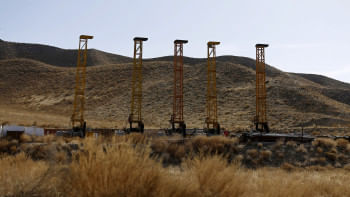
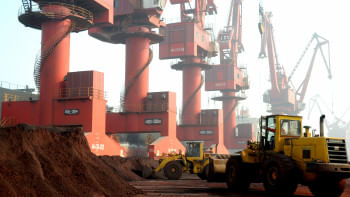


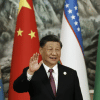
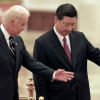

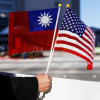
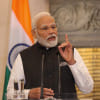


Comments